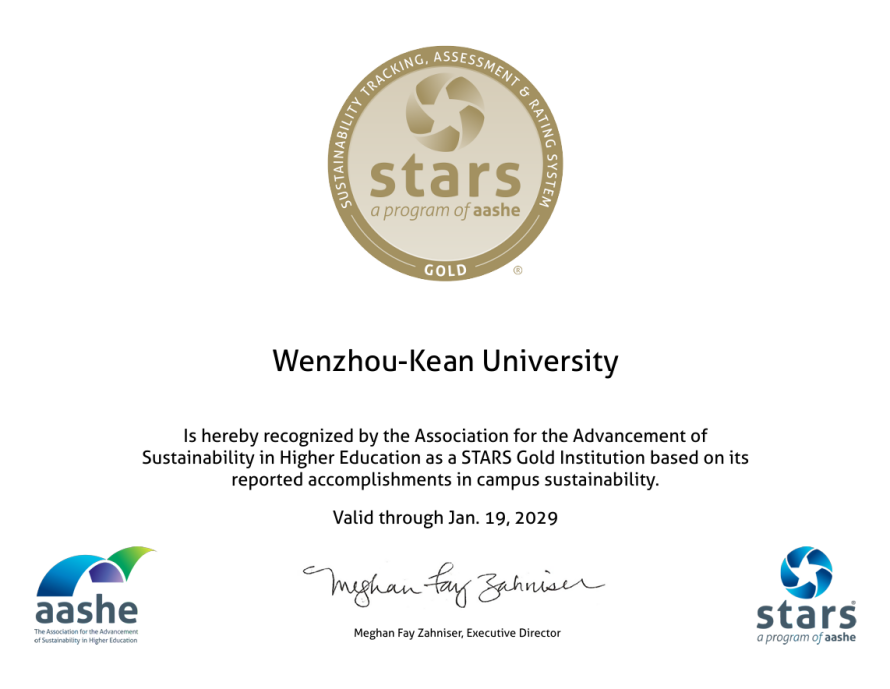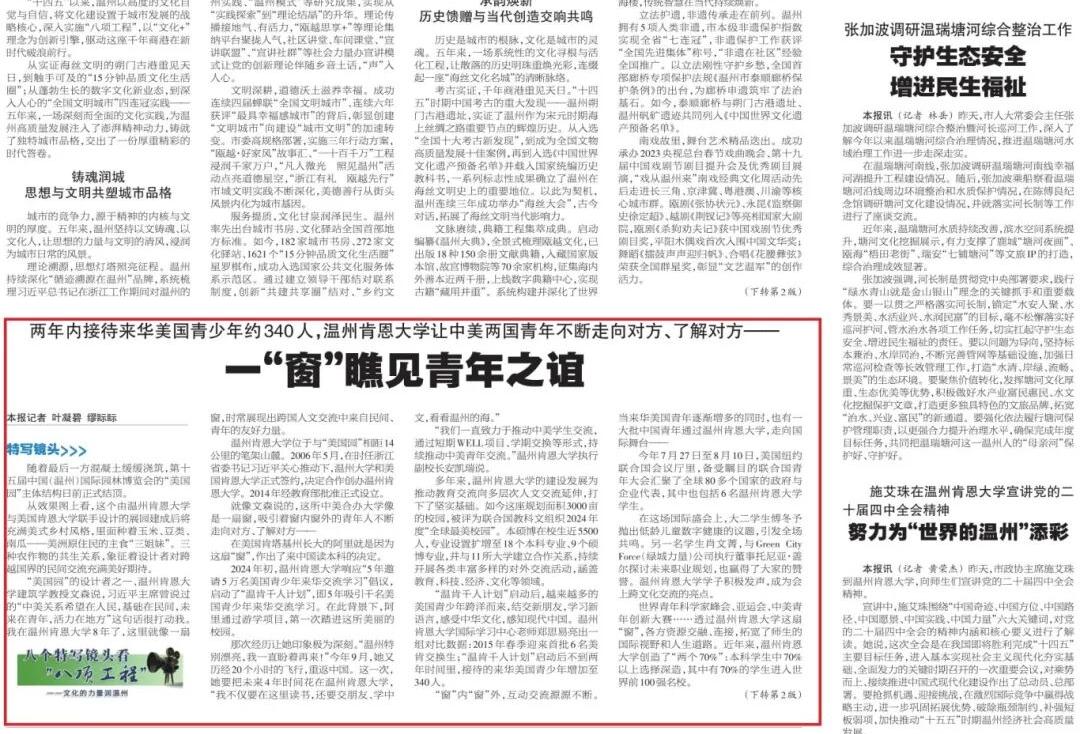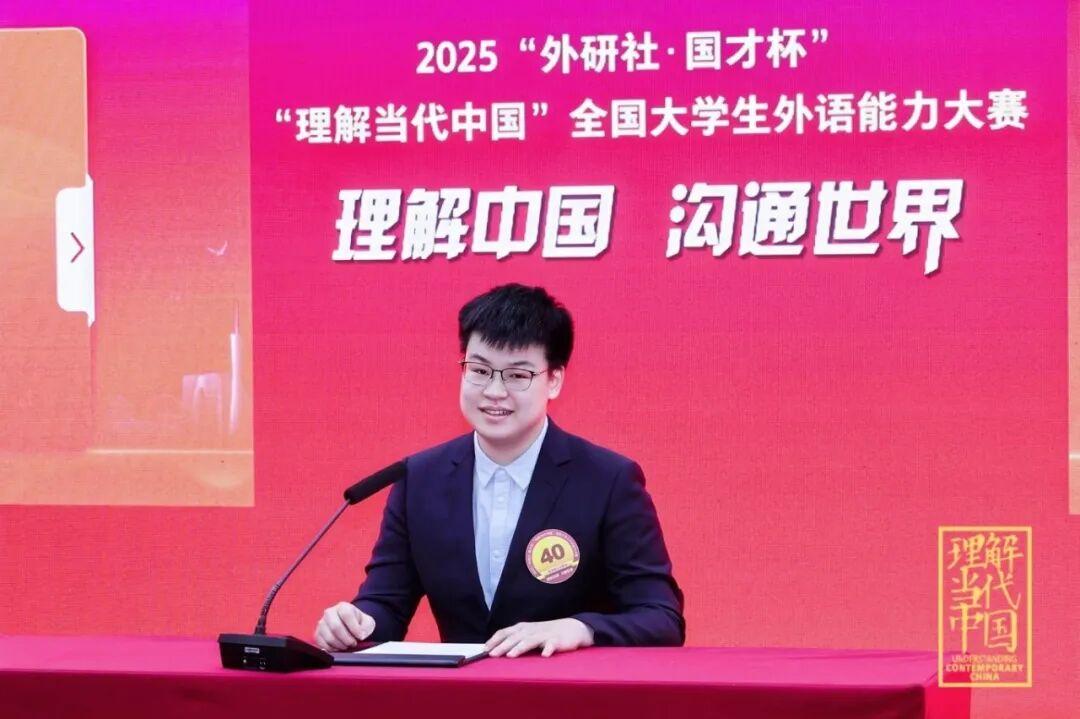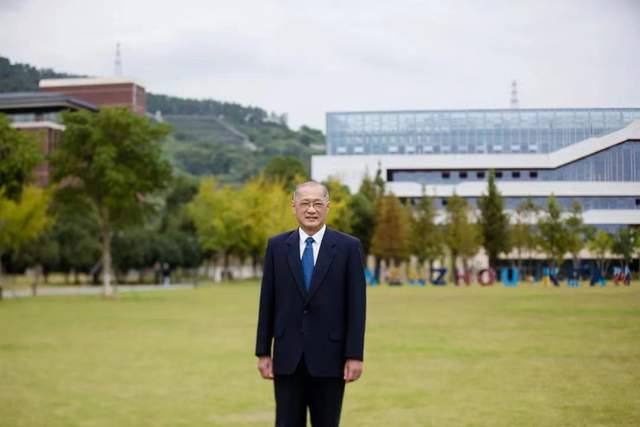【China Education Daily】 Creating a future-oriented university that embraces the world – Interview with Wang Li, Chancellor of Wenzhou-Kean University
Wenzhou is the “origin” and “test field” of China’s reform and opening-up. In 2006, while working in Zhejiang Province, Xi Jinping attended the signing ceremony of the cooperation between Wenzhou University and Kean University to establish Wenzhou-Kean University (WKU). In 2014, Wenzhou-Kean University was officially established. Since then, the University has established its roots in Wenzhou and is committed to building a platform for exchange and cooperation and cultivating international talents. In the review of the history of Wenzhou-Kean University, how to understand international education under the new development pattern? How do you consolidate the characteristic of running WKU and form the distinct advantages of WKU? The journalist of China Education News interviewed Wang Li, Foreign Academician of The Russian Academy of Engineering and Chancellor of Wenzhou-Kean University.
(Wang Li, Chancellor of WKU)
The following section is excerpted from China Education Daily (Page 9, June 16th, 2022):
01 Basis—Based on the local region to run the University
Journalist: In your opinion, what are the differences between Sino-foreign cooperative universities and other universities?
Wang Li: Sino-foreign cooperative universities are rooted in China and integrate with the world, with their own characteristics. Taking Wenzhou-Kean University as an example, firstly, it is a university based in Wenzhou. Openness and inclusiveness are the keys to Wenzhou’s vitality. Wenzhou people are distributed all over the world and have been known for the pioneering spirit of innovation. In my opinion, this is one of the reasons why the CPC Zhejiang Provincial Committee and the People’s Government of Zhejiang Province choose Wenzhou as the site for this university project. The practice of running WKU is one of the epitomes of the opening-up of education in Zhejiang Province. Secondly, WKU is an international and China-US cooperative university founded in China. Therefore, the most significant running characteristics of WKU are as follows: The first is the introduction of high-quality educational resources from the United States to China, with the aim to innovate the teaching mode of China-US integration; second, WKU always adheres to the fundamental task of building up moral integrity and cultivates socialist builders and successors with all-around ability in areas such as morals, intelligence, physical fitness, work, and aesthetics. It can be said that, over the years, we have based on Wenzhou to run WKU, created a path of Sino-foreign cooperative education from nothing, and turned it into an excellent university.
Journalist: The relationship between cities and universities features mutual empowerment, co-existence, and co-prosperity. How do universities serve and empower localities?
Wang Li: The growth of a university is always closely related to serving local development. According to Wenzhou’s needs for economic and social development, WKU has introduced the advantage majors of Kean University. At present, WKU has four major colleges, namely, the College of Liberal Arts, the College of Business & Public Management, the College of Science and Technology, and the College of Architecture & Design, with 21 undergraduate majors (directions included). The Wenzhou-Kean University Bioinformatics International Science and Technology Cooperation Center has been recognized as the “Provincial International Science and Technology Cooperation Base in 2020”. Last year, Wenzhou’s first Applied Biomedical Informatics Key Lab also settled in WKU.
In addition, WKU has also established platforms such as Zhejiang Kean Entrepreneurship and Innovation Research Institute, Wenzhou Industrial Economy Research Base, Institute of Asian Industry Competitiveness, and Creative City Research Center, guiding the international teacher team to lead the students to carry out academic research in the fields of market expansion, business model innovation, business strategy, and competitiveness to boost local economic development.
Journalist: The integrated development of the Yangtze River Delta has become a national strategy. How can Sino-foreign cooperative universities integrate into the integration of the Yangtze River Delta and make unique contributions?
Wang Li: Sino-foreign cooperative universities shoulder the mission of exploration and innovation. In the development process of the Yangtze River Delta, Sino-foreign cooperative universities should further exert their advantages and deeply integrate into the process. Such universities should step into a new stage of breakthroughs in the development of industries, universities, and research institutes, rely on the international school-running platform, make full use of high-quality academic resources, and promote the region to become a center for gathering high-end talent resources and continuously producing scientific and technological innovations, make efforts to promote the exchange of international educational concepts, the mutual use of talents, the sharing of resources and the complementation of advantages in the Yangtze River Delta, and accelerate to break down regional barriers and obstacles.
Journalist: In your opinion, what is the advantage of the students trained by Sino-foreign cooperative universities?
Wang Li: Our talent training goal is to develop students into international talents who have a global vision, are familiar with international rules and affairs and have the ability to innovate, create and expand. Therefore, compared with conventional universities, I think that the advantage of students from Sino-foreign cooperative universities is that they have a unique international vision. In recent years, WKU has trained a group of talents with an international vision and patriotism. More than 60% of graduates go to well-known universities around the world for further studies. At the University Scholars Leadership Symposium and various overseas exchanges and research activities, more and more students from WKU have made their voices for China.
Journalist: What is the secret of WKU for training high-quality international talents?
Wang Li: In terms of course design, Sino-foreign cooperative universities introduce courses from foreign universities, adopt original international textbooks, and share databases and electronic resources of foreign universities. High-level teachers from all over the world and international teaching help students grow quickly. Furthermore, small classes and group discussions in English only enable students to embrace differences and pursue cooperation. In terms of concept, we, WKU, pay special attention to “finding different development orientations for different students” and guide students to cope with the changing situation with a scientific world outlook, outlook on life, and values in the international tide and make rational choices.
Journalist: How does the concept of “finding different development orientations for different students” fit into the practice of talent training?
Wang Li: At Wenzhou-Kean University, it is common to see cases of interdisciplinary development. For example, Dou Wanying, a WKU graduate this year accepted by Harvard University, who majored in computer science for her undergraduate degree, applied the major of Computational Biology and Quantitative Genetics. During her four years at WKU, she studied the minors of mathematics and bioinformatics and researched and published papers with professors. In addition, Gao Chen, a graduate of English this year, loves arts very much. She volunteered at the Art Museum on the campus of WKU after class, researched with professors at ordinary times, and finally received an offer from the university ranking first in terms of the art history major in the UK and won the full scholarship of University College Dublin.
In some colleges and universities, it is difficult for interdisciplinary development. However, it is quite the opposite at WKU. We have established a policy of “two freedoms” with a view to the all-round development of students. The first is the freedom in major selection. Suppose a student who thinks that he/she does not adapt to the major can apply for major change through a certain procedure. The second “freedom” is that because WKU shares the same teaching plan and textbooks as Kean University, students are free to choose their place of study through a certain procedure. These “two freedoms” can mobilize the inner driving force for the study of students. In addition, WKU offers international platforms of research, practice, volunteer services, and so on for the students, providing the ground for the diversified development of students.
Journalist: In your opinion, how to better cultivate students’ patriotism in the international environment?
Wang Li: At the beginning of the establishment of Wenzhou-Kean University, we discussed clearly with the US side that the Party building should be incorporated into the Constitutions of the University. Since the operation, the University has always adhered to the synchronous Party building, synchronous establishment of Party organizations, and synchronous development of the Party’s work. In teaching, although the Sino-foreign cooperative universities use foreign textbooks and teaching plans and use English as the teaching language, they always insist that the roots of the students are in China. Considering such a condition, we cultivate and further the patriotism of the students from two aspects. First, unique courses about China’s conditions are set up for students, including education about China’s conditions, art education, physical education, etc. Second, the Party history study and education are actively integrated academic lectures, political and political discussions, art festivals, and so on are held to nourish students’ emotions about home and country and cultivate their characters.
In terms of student management, WKU adopts a system of “academy tutors” and “growth consultants” and employs faculty and staff as “growth consultants”. Each growth consultant guides about 30 students in terms of study and life. I also hold the same position concurrently. In addition, based on the characteristics of Sino-foreign cooperative universities, WKU encourages teachers and students to tell China stories well. Through various cultural exchange activities, we have rooted the recognition of the excellent Chinese traditional culture in the minds of the students and encouraged them to produce and promote excellent works of Chinese culture. For example, Chinese and foreign teachers and students jointly produced a bilingual Party history lesson called “Choices of Youth” to celebrate the 100th Anniversary of the Founding of the Communist Party of China (CPC), which received more than 1.5 million broadcasts on online platforms.
03 Vision—Looking Ahead to Seek Development
Journalist: What kind of universities are international and high-level? What can universities do to achieve this goal?
Wang Li: “To be international and high-level universities” is the future development goal of Sino-foreign cooperative universities. In the new era, the concept of building a community with a shared future for mankind proposed by General Secretary Xi Jinping has put forward new requirements for international education. Sino-foreign cooperative universities should take the initiative to serve the major strategic needs of the country, intensely care about global issues, further the opening of education to the outside world, and speed up the process and steps of school-running internationalization.
The internationalization of universities includes cultivating students’ international vision, enhancing their understanding of multiculturalism, and developing their ability to work and lead in the context of globalization; promoting global scientific research cooperation and exchange among universities and furthering the overall development of scientific research; building a hub for international talents and giving full play to the gathering effect of international talents; and integrating resources globally to bring more advanced educational concepts and experiences to China. The high level of a university should be embodied in all aspects of running, such as high-level running conditions, high-level teaching staff, high-level teaching quality, high-level scientific research results, high-level social reputation, and further high-level education and employment quality.
WKU has operated for a short period only, and there is still a long way to reach the “high level”. In the next five years, we will focus on the following six aspects to achieve the goal of “an international and high-level university”.
First, we will build consensus and realize win-win cooperation to lead China-US cooperative education to a new level. We will consolidate the foundation for cooperative education, advance the modernization of WKU’s governance system and capacity, further strengthen the rule of law, and improve the corporate governance structure of WKU. We will strengthen in-depth integration and cooperation between universities at all levels, enhance exchanges between Chinese and American directors, and between the management of the two universities, colleges, teachers, and students, continue to further the mutually beneficial cooperation between WKU, Kean University, and Wenzhou University, and work together to build a cooperative education brand. We will build a platform for cooperation and exchange, and turn WKU into a platform for intergovernmental, educational and business consultations.
Second, we will be student-oriented to innovate service and establish a scientific and efficient education mode. Next, we will expand the enrollment scale and steadily improve the source quality of students and the degree of internationalization of WKU. We will expand the enrollment of international students and students from Hong Kong, Macao, and Taiwan, actively engage in the enrollment of graduate students for a master’s degree or a doctoral degree, explore and support the systems of successive graduate and postgraduate programs of study, successive graduate, postgraduate and doctoral programs of study, and successive postgraduate and doctoral programs of study in majors with mature conditions, and build a student-centered student affairs system to improve students’ satisfaction with campus life.
Third, we will strengthen the characteristics, upgrade the level, and build an international quality education and teaching system. On the one hand, we will optimize the setting of disciplines and specialties and open all the planned majors by 2025. We will also introduce the medical care-related majors of Kean University to serve the development of the local health industry. On the other hand, strengthen the course development. We will develop online courses, strengthen the system of courses about China’s conditions, strengthen the development of art education, patriotism, culture, and education centers, strengthen the construction of subject infrastructure and service resources, strengthen teaching management and quality control, and promote the construction of ideological and political courses.
Fourth, we will increase support, promote innovation, and raise the level and contribution of scientific research. WKU will continue to increase investment in scientific research and expand cooperation and exchanges in scientific research. We will carry out in-depth research projects for faculty and students (SpF/SpS) to support faculty and students in carrying out various research activities. We will strive to build one or two provincial key laboratories and collaborative innovation centers, two or three municipal key laboratories and collaborative innovation centers, and two high-level international scientific research cooperation platforms with great influence. In addition, we will actively guide the transformation of scientific research results to serve local economic development. We will further play the role of the Zhejiang Kean Institution of Innovation, Creativity and Entrepreneurship to promote China-US cooperation in science, technology, trade, and economic exchange; strengthen the cooperation among enterprises, universities, and research institutes and establish joint R&D centers between WKU and enterprises; cooperate with local governments to build overseas incubators or technical service platforms; and strengthen global business consulting, government policy-making consulting, and other services. We plan to establish more than five joint R&D centers between WKU and enterprises by 2025.
Fifth, we will improve the quality, optimize the structure, and build a high-level international faculty. The first is to improve the teacher recruitment system and establish a sufficient, stable, international, and high-level faculty. The second is to improve the overall level of faculty, promote the professional development of teachers, and strengthen the construction of teachers’ ethics.
Sixth, we will integrate into local areas, promote exchanges, and highlight the innovative mission of serving the community and inheriting culture. WKU will build a number of important display bases or platforms, actively carry out various activities, strengthen the university-city linkage, and help build “Kean Town” suitable for learning, living, and starting a business, and build the affiliated kindergartens and schools of Wenzhou-Kean University to meet the international educational needs of “Kean Town” and even Wenzhou and build an international community suitable for the living of foreign experts and high-level talents. In addition, we will actively promote the construction of Overseas Chinese College, cooperate in developing Wenzhou-Kean University Business College, and strive to build provincial and municipal international exchange bases.
Journalist: COVID-19 pandemic has brought about many uncertainties. What opportunities and challenges do you think it brings? How to seize the opportunities and meet the challenges?
Wang Li: The ongoing COVID-19 pandemic has brought various crises to Sino-foreign cooperative universities. In dealing with these crises, we are gradually enhancing our understanding of the risks of international education cooperation. In the post-pandemic era, some excellent practices need to be summarized to promote the establishment of a long-term mechanism. For example, we should explore the new form of future colleges and universities that integrate online and offline teaching modes, introduce high-quality online education resources around the world, and incorporate them into the previous distinctive brick-and-mortar campus.
In the future, Sino-foreign cooperative universities still need to accelerate integrated development, merge the best course resources, and develop innovative teaching modes such as e-learning and b-learning to incorporate them into education and teaching and create an efficient platform for teacher-student interaction and communication. We need to explore a high-level international education cooperation mechanism to adapt to China’s education environment and enhance the ability of international education cooperation to resist risks.
In the post-pandemic era, Sino-foreign cooperative universities should conscientiously improve their sense of responsibility and ability to respond to crises, serve China’s diplomatic strategy and economic and social development as their mission, and make use of their comprehensive advantages in running international schools and cultivating talents to actively serve major national strategies.
- Wenzhou-Kean University Spearheading Sustainability in Higher Education in Asia and in China, Awarded the AASHE STARS Gold-Certified in Sustainability

- Media Report | Wenzhou Daily: A Window into Friendship Between Chinese and U.S. Youths Wenzhou-Kean University Welcomes 340 Young Americans in Two Years

- WKU Student wins first prize in a national English speech contest: What is his answer to the value of boredom?



